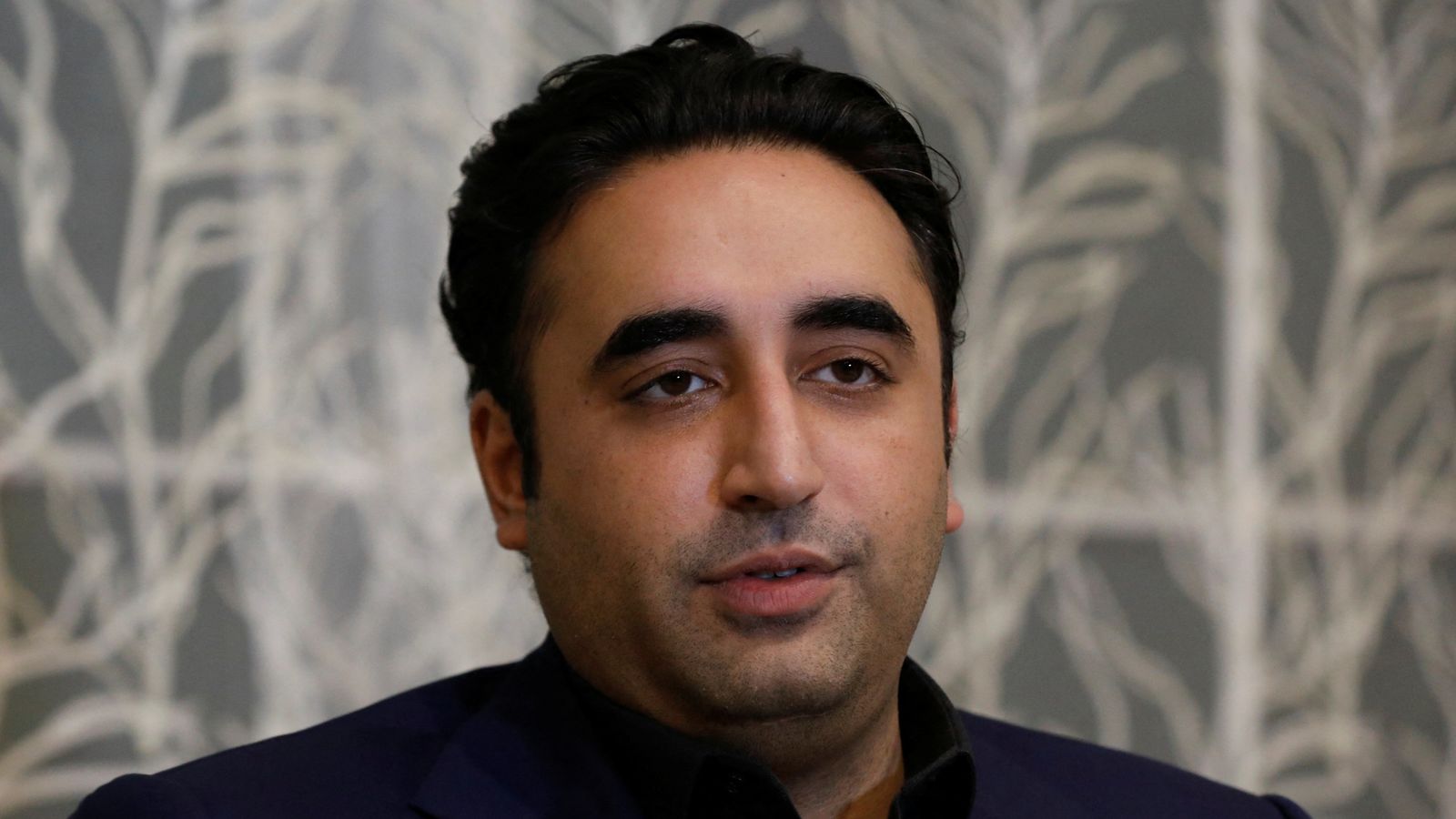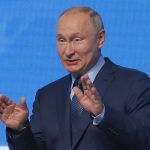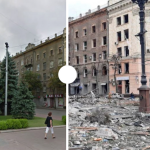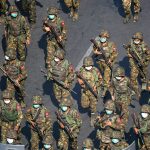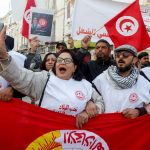We’re weaving through the streets of a very smoggy Karachi with Bilawal Bhutto Zardari.
The 35-year-old son of former prime minister Benazir Bhutto is hoping to lead Pakistan through a deeply turbulent time.
Today he’s on a double-decker container bus for the first time in this race, in a very last-minute push in the commercial capital to drum up support before Pakistanis head to the polls tomorrow.
His team enthusiastically tells us we’re at the beginning of a 12-hour journey.
Most of that will be spent slowly creeping through unimaginably narrow streets and navigating low-hanging electricity cables, as supporters throw rose petals from the rooftops onto the top of the bus where we spent a lot of time crouching down.
I spot one of Mr Bhutto Zardari’s team incongruously wearing a rubber marigold glove. I soon realise he’s using it to lift every cable that looks like it might hit us.
Politics in Pakistan is a risky business.
It’s a chaotic and colourful journey, with supporters of his Pakistan People’s Party turning out in large numbers to see him.
But the candidates this year have been strikingly less visible than in previous years. One, the frontrunner, has been totally absent in fact – banned from running.
Read more – Pakistan’s election explained:
A prisoner, a kingmaker and an unexpected return
Please use Chrome browser for a more accessible video player
A cycle of vengeance, jailings and military influence
Imran Khan, the cricketer turned politician, was recently jailed for 34 years, charged with corruption, leaking state secrets and an “un-Islamic” marriage.
He denies all of the charges and claims they’re politically motivated.
Many of his PTI party members have also been locked up, unable to stand. They claim the election is rigged, that the military is meddling in the result and intimidating candidates.
And their anger comes against a backdrop of a spiralling economy and rising terror threats.
“I think that to an outsider, it may look shocking,” Mr Bhutto Zardari tells me. “But unfortunately, this is nothing new for Pakistani politics.
“What I am campaigning on is to try and bring a change to what I think has led to a lot of the younger generation of Pakistanis… disenchanted by the status quo, with the war that Pakistani politics has been running.”
He’s vowing to end the “politics of hate.” But many of Khan’s supporters think the cycle of vengeance runs right through this election.
Mr Bhuttto Zardari thinks Khan has contributed to that cycle, though. He tells me: “When he was in power, Imran Khan rather relished having his political opposition of all stripes in prison quite actively… not just his political opponents, but his political opponents’ daughters, his political opponents’ sisters.”
The wide consensus is that the military is pulling the strings this election – that they want Nawaz Sharif to be prime minister and will do whatever it takes to get him there.
It is ironic given the three-time former prime minister, who himself spent time behind bars, was a thorn in the military’s side for so long.
But the pendulum swings fast here and he’s apparently considered to be their safest option for steadying the ship.
Be the first to get Breaking News
Install the Sky News app for free
Likely kingmaker faces enormous task
You can’t assume anything in this mercurial political landscape, though.
There’s talk that PTI candidates, now forced to run as independents, could do very well at the polls, fuelled by frustration and determination.
If Pakistan ends up with a leader lacking popular support and who can’t improve the lives of ordinary people quickly, there is a fairly high risk of social unrest.
Any suspicion of overt rigging, which independent observers have raised concerns about, could lead to a lot of volatility.
For his part, Mr Bhutto Zardari wants to be a changemaker. He’s got a much better shot at being a kingmaker, possibly as a coalition partner.
But whoever does win, has a big in-tray to tackle – a weak economy and a rising terror threat.
